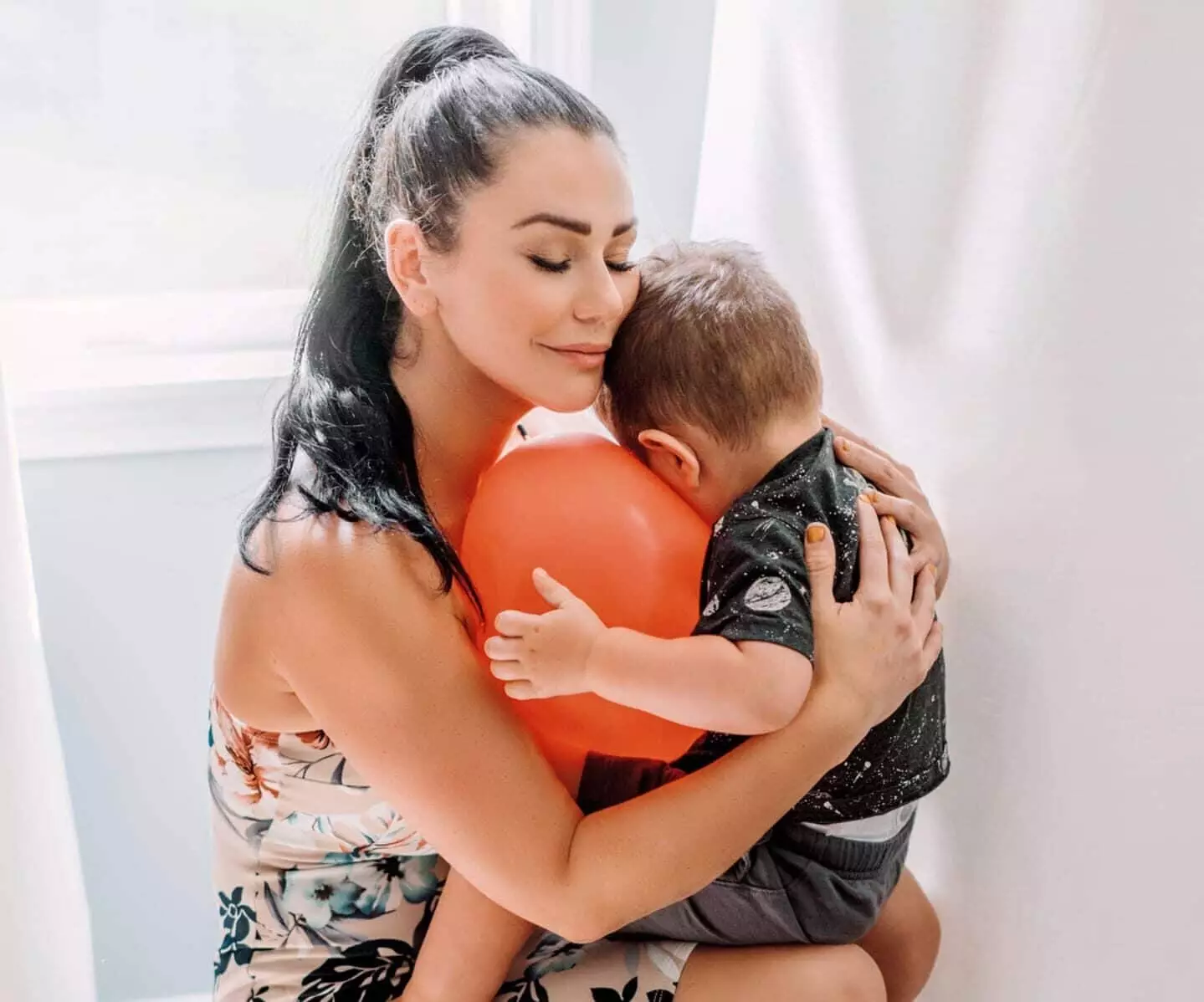In today’s digital age, reality television often serves as a window into the personal lives of its stars, allowing fans to witness not only moments of joy but also challenges and vulnerabilities. Jenni “JWoww” Farley, known for her stint on “Jersey Shore,” has recently opened up about a significant concern that transcends the glitz and glamour of reality TV. During the premiere of “Jersey Shore: Family Vacation,” she candidly discussed her 2-year-old son, Greyson, who is facing a speech delay. This brave admission serves as a powerful reminder of the emotional rollercoaster that accompanies parenting, especially when one’s child does not meet developmental milestones.
Speech delays are not uncommon, and many parents can relate to the anxiety that comes with a child who struggles to communicate. Farley’s heartfelt revelation resonates with countless families who find themselves worrying over their children’s development. In expressing her feelings of concern and disappointment about Greyson’s speech challenges, Farley has not only invited empathy from her audience but has also sparked an important conversation about the realities many children face.
In today’s interconnected world, the support of fellow parents can make a significant difference. After Farley shared her experiences on national television, she was met with an outpouring of responses from viewers who had faced similar challenges with their own children. Through her Instagram account, she expressed gratitude to those who reached out, creating a sense of community and connectedness among those navigating the murky waters of parenting’s ups and downs.
Farley’s acknowledgment of her feelings illustrates a vital element of modern parenthood: the need for validation and support. As she shared her story and demonstrated vulnerability, many parents likely felt a sense of relief in knowing they were not alone in their struggles. The importance of discussing these issues openly cannot be overstated, as it helps normalize conversations around developmental concerns and fosters solidarity.
In her reflections, Farley articulated a profound realization about societal expectations of parenthood. The pressure to have “perfect children” can be overwhelming, causing guilt and self-doubt. Nonetheless, she recognizes that despite any delays, her son Greyson is perfect just the way he is. This acknowledgment marks an important shift in mindset—moving from expectations of perfection to embracing the individuality of each child.
JWoww’s journey is not simply about navigating her son’s speech delay; it encompasses a larger narrative about accepting children for who they are. This acceptance is essential in providing the right environment for children to thrive, irrespective of their developmental pace. By sharing her story, Farley demonstrates the importance of prioritizing emotional health alongside physical milestones, fostering a love that acknowledges the uniqueness of each child.
The Centers for Disease Control and Prevention (CDC) provide essential guidelines concerning language development, indicating that by age two, children should typically be using simple two- to four-word sentences. The recommendation for parents to consult with healthcare professionals if their child is not meeting these guidelines is grounded in the desire to ensure that necessary interventions can be implemented as early as possible.
Farley’s proactive approach towards her son’s speech therapy highlights the importance of early intervention. Engaging with therapists and implementing dietary changes demonstrates a commitment to supporting development while actively seeking solutions. It showcases the essence of parenting: being an advocate for your child and remaining vigilant about their needs.
Research supports the notion that early intervention is critical in overcoming speech and language delays. The spectrum of possibilities affecting speech delays is broad, ranging from hearing issues to developmental disorders. By consulting with professionals such as speech-language pathologists, parents can tailor interventions based on individual circumstances, effectively addressing these hurdles.
Through her journey, Farley has emerged not just as a reality star but as an advocate for parents grappling with similar issues. With speech delays affecting a noteworthy percentage of children, her openness offers comfort and encouragement. Research reveals that a significant number of late talkers will eventually catch up, especially when given the right support. By sharing her experiences, JWoww has not only illuminated her own struggles but has also provided a beacon of hope for others facing similar challenges.
Jenni “JWoww” Farley’s candid discussions around her son Greyson’s speech delay reveal essential truths about parenting—the importance of community, acceptance, and proactive approaches to developmental concerns. Her story is a testament to the fact that while the path may be fraught with difficulties, it is also filled with love, growth, and resilience. As parents navigate the complexities of childhood development, the support and understanding found in shared experiences can make all the difference.

